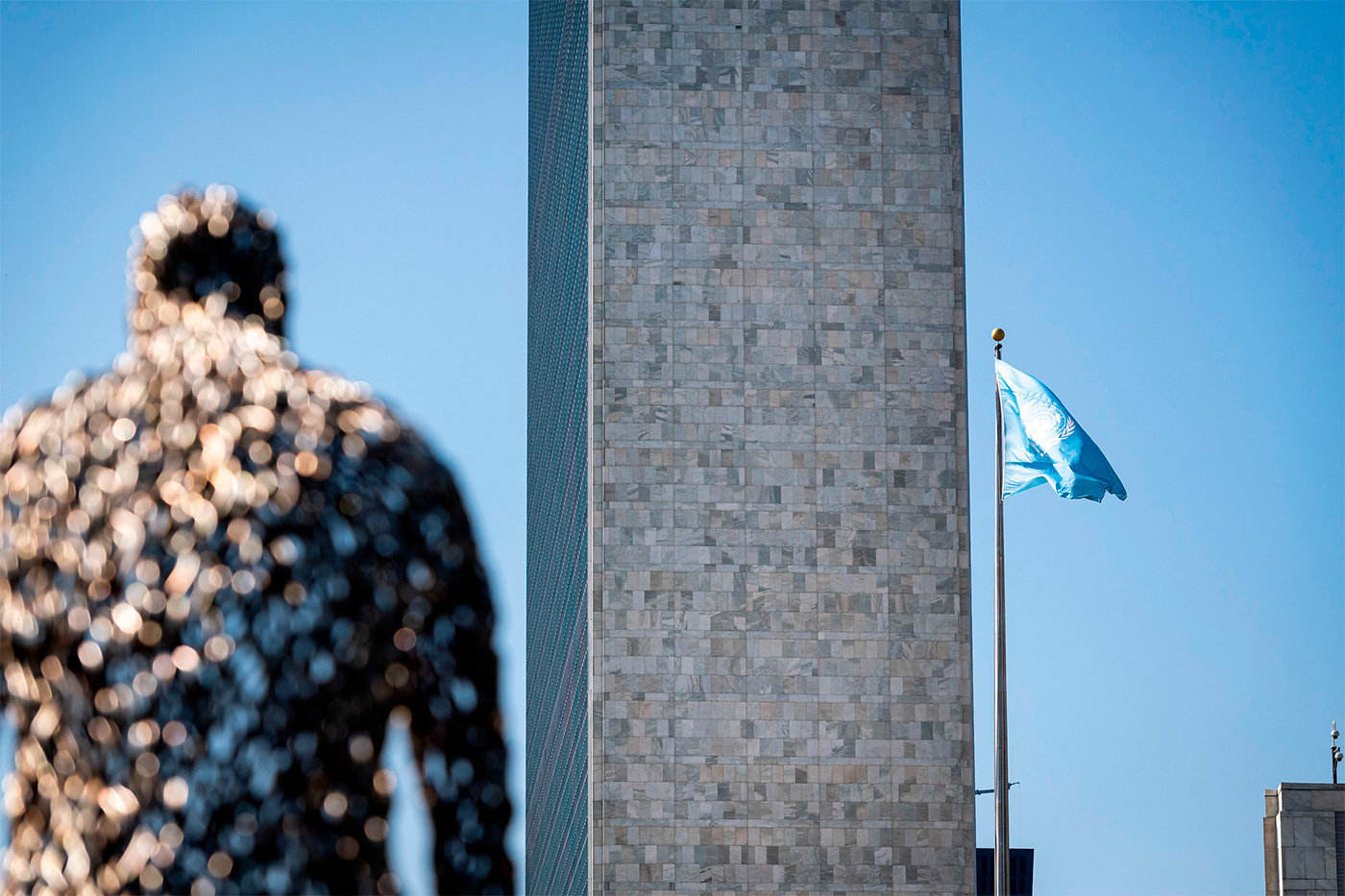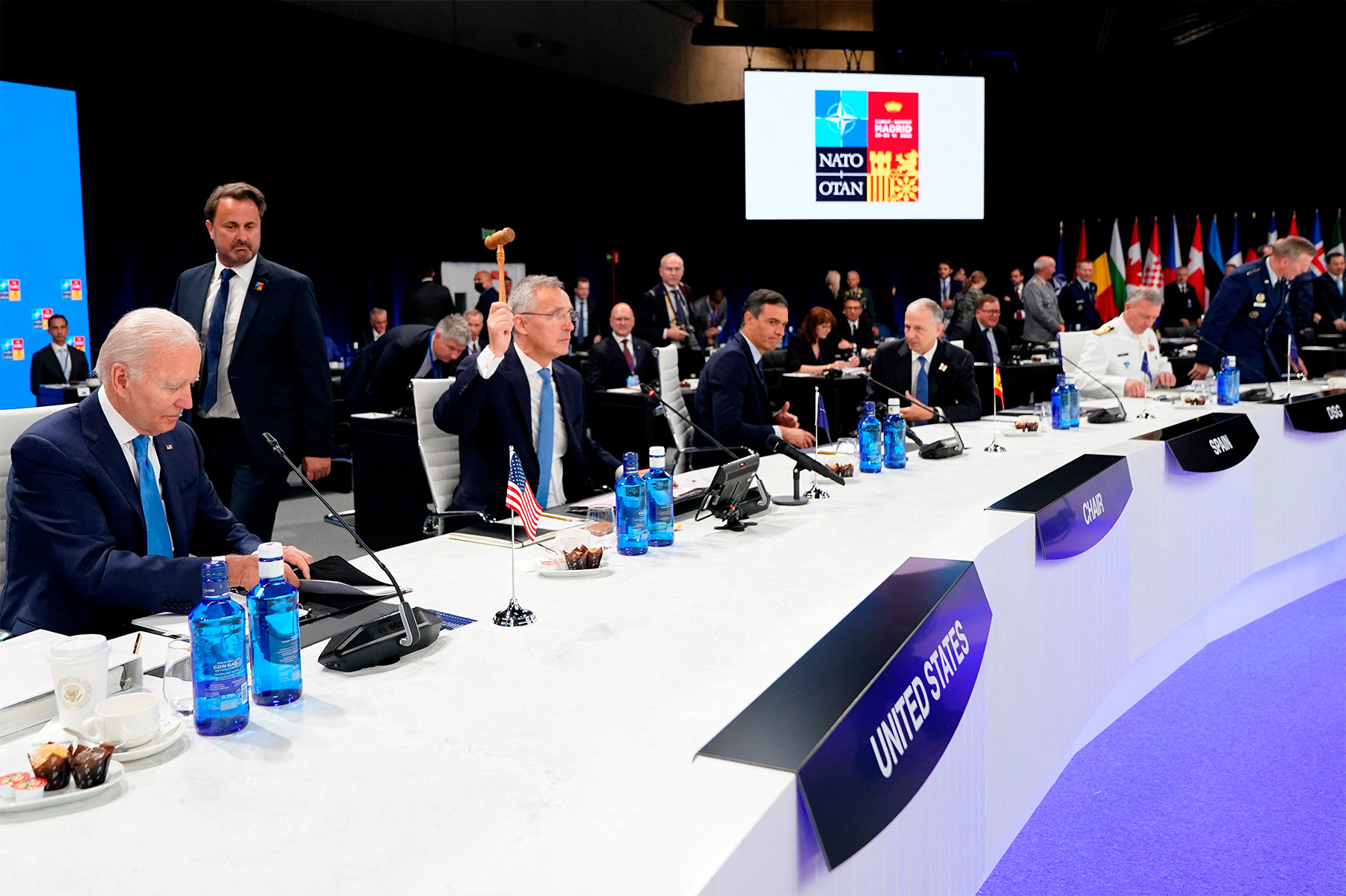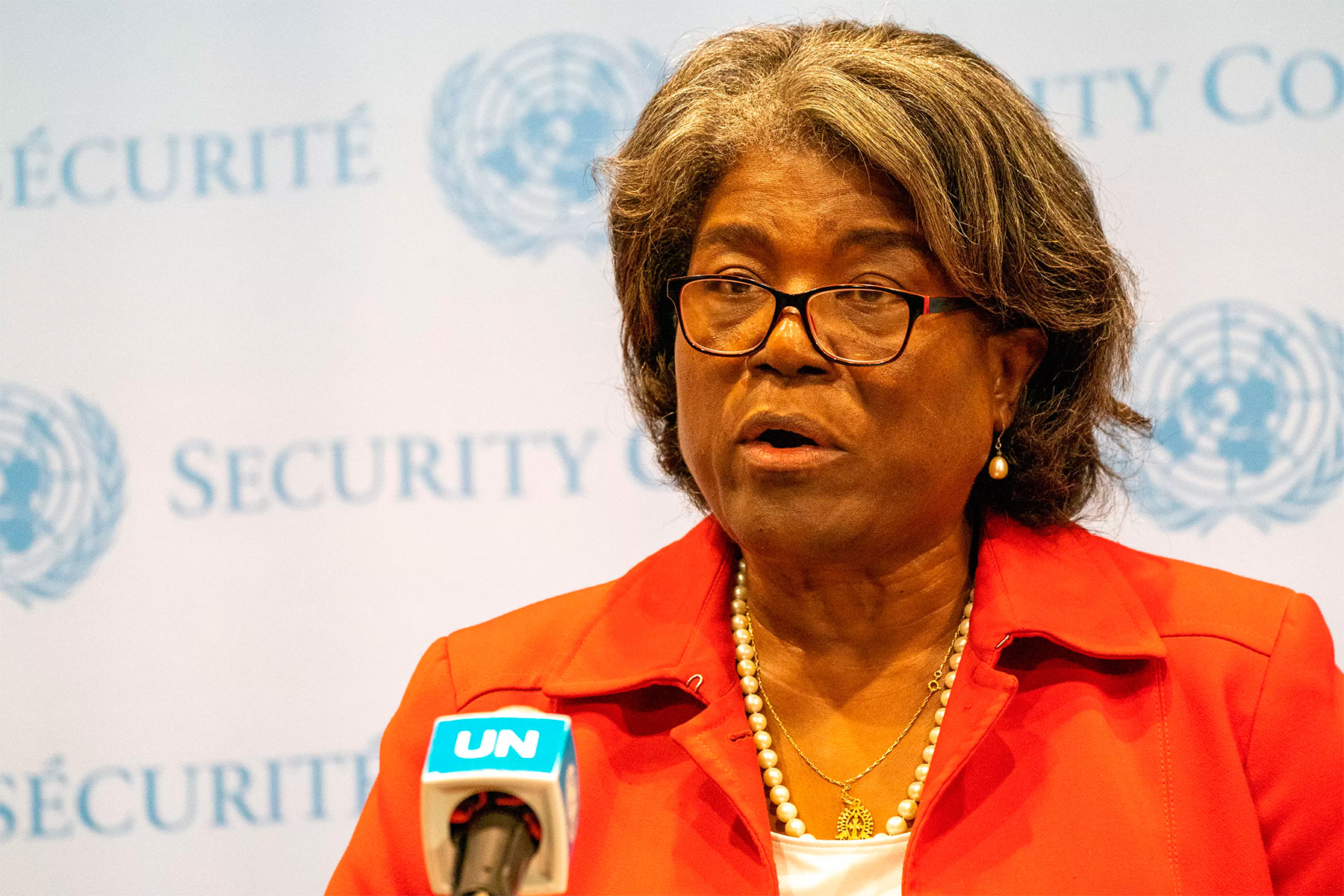The UN seems to have everything necessary at its disposal to assume this role. Admittedly, this organization has over the past decades been perceived—in our country and beyond—almost as a magic pill for international problems and misfortunes. In recent decades, the UN has been forfeiting its self-perception as an international mechanism capable of bringing together nations that are ever more divergent on political and regional grounds, including security interests, not to mention socio-economic development. This dynamics has shown that the UN system, including permanent membership in the Security Council, are far from reliable “safeguards” against the threat of new wars and conflicts. Nor is it conducive to ensuring that Russia’s security interests are reckoned with.
Amidst a political stalemate on the UN platform, Russian foreign policy-making keeps paving its way through the maze of rethinking the changes in the international situation and the content of the new world order. Until recently, the basic guiding message, which sounded from Smolensk Square, was very clear and simple in its wording: We are breaking off with the West and moving towards the non-West. For the West is “the territory of evil”, while the non-West or “global majority” is a space of hope and international perspective. Therefore, it is there that we can and should build what is destined to replace the current world order, as its more equitable version. Recently, the original formula for such a movement—breaking with the West and moving towards the non-West—has been getting more complicated.
The UN system, as it is today, is prone to conserve the conceptual and structural paradigm of the existing architecture of international relations. We must admit that a radical reinvention of the current model, such that would put international relations on a fundamentally new basis, has not become truly pervasive in this global organization, given that international relations, in a broader sense, are in need of conceptual revision.
A plethora of fora organized by international institutions this fall, above all by the United Nations with its “ministerial week” involving heads of states and governments and foreign ministers, is a suitable occasion to explore the prospects of a new international order. Or, perhaps, this could be a good chance to transform the existing system of international relations, both in terms of its contents and when it has to do with searching for an organizational platform to fulfill the conceptually intended purposes and to serve as the foundation of a new framework for mutual understanding, equitable and fair collaboration, which would be instrumental in groping for a just settlement of the international crisis around Ukraine.
The UN seems to have everything necessary at its disposal to assume this role. Admittedly, this organization has over the past decades been perceived—in our country and beyond—almost as a magic pill for international problems and misfortunes, a miracle cure of the last resort supposed to save the world and ensure planetary security in the face of global threats. All these hopes mainly stemmed from the Soviet Union (Russia as its successor), an ally in the anti-Hitler coalition, being involved in the process of establishing the UN and enjoying the status of a permanent member of the UN Security Council with the right to make binding decisions for the international community, including the joint use of military force against violators of the UN Charter as well as veto power.
And so, it is no coincidence that weaknesses or outright miscalculations of the UN institutions, including during periods of acute international crises, have quite often been ignored. Hopes pinned on the UN system that badly needed a reality check encouraged speculations about how the global structure could benefit the international community and, particularly, Russia. The significance and real capabilities of the UN Security Council were blown out of proportion. The UN global platform was conceived and proclaimed as an optimal vehicle for a comprehensive and constructive international dialogue, seemingly the basis of a just international order, especially as far as security was concerned. It was seen as an umbrella institution relative to other international structures of regional ilk, which embraces all the major topics of the international agenda, such as socio-economic progress, national and regional development, rather than just the issues of war and peace or international security.
That this picture was far from reality became increasingly clear as negative trends in international relations grew in momentum. In recent decades, which were marked by the complex dynamics of international relations as well as continuous changes in the balance of power and influence between today’s “global centers,” the UN has been forfeiting its self-perception as an international mechanism capable of bringing together nations that are ever more divergent on political and regional grounds, including security interests, not to mention socio-economic development. This kind of dynamics has shown that the UN system, including permanent membership in the Security Council, are far from reliable “safeguards” against the threat of new wars and conflicts. Nor is it conducive to ensuring that Russia’s security interests are reckoned with. The UN history in recent decades suggests that the UN Security Council, as well as the organization as such, has become a tilt yard for back-and-forth rather than a think tank called to forge real solutions to issues of war and peace that meet the agreed vision of the nuclear P5.
The organization has proved a security fiasco, both globally and regionally. It is more like a backup institution in a minor capacity than a pivotal player in averting conflicts and international crises. It is not in a position to adequately curb dangerous international developments. One proof of this is the large number of conflicts in different parts of the world that were deemed frozen—rather, they are still simmering to defy any settlement despite all the peacemaking splutter in the global UN venue.
The UN has essentially failed to politically sponsor the U.S.-Russian dialogue on strategic stability and the negotiations on arms control, especially concerning its nuclear component as the “core axis” across the entire system of international security. What of the UN’s real contribution to facilitating negotiations amid the current international crisis! This area has remained entirely at the discretion of the United States and Russia as an aspect of bilateral relations between the nuclear superpowers. There is little indication that this could change, so that the UN would at least be willing to serve as a catalyst for restoring mutual understanding between the superpowers in this area.
We are faced with a similar situation when it comes to regional security frameworks. The UN has been unable to control and regulate the activities of regional actors and structures, say, in the Euro-Atlantic zone, in the same way NATO or the former Western European Union can do. Did the organization function as a counterweight in the process of the Alliance’s hasty expansion towards the borders of the nuclear superpower Russia, thus contributing to international stability and implementation of verbal assurances on non-expansion given to the Soviet leadership by NATO’s leaders? The same applies to the well-known Russian demands made in December 2021.
Whatever can be said about the benefits of UN’s specialized programs and projects, it is also clear that the crisis that has engulfed the key area of this global structure’s responsibility will inevitably manifest itself in other areas, such as the WHO manipulating with pandemics. Or FAO recognizing the threat of global hunger (due to its actual inability to facilitate the settlement of the international crisis!), while UN Secretary General A. Guterres signs off on his inability to implement the terms of the Istanbul agreements on grain exports. Not to mention the prospects of international “financial pillars” for a globalized world in the form of a reformed Bretton Woods system.
What the “ministerial week” in September confirmed was the divergent interests of the leading powers—in particular, the confrontational narrative between Russia and the “Collective West”. Russia’s official representative to the UN offered an explanation that the reason for this divergence (he was talking about a specific but crucial to today’s political agenda threat of using nuclear weapons) was that President Biden had misquoted President Putin and instructed the entire Collective West to promote a strictly U.S. version of Russia’s actions. This can hardly be accepted as a convincing explanation, though. If only the whole thing came down to correct quotes at the General Assembly or elsewhere! The more so, because assessments by some representatives of the Collective West—for instance, some Western Europeans—are harsher and far less acceptable to Moscow than those of Mr. Biden. Can all of this be explained exclusively by the work of “American orchestrators hiding in the shadow” in respect to an “obedient Europe”?
We see split opinions over the Ukrainian crisis in the UN, which is blatantly obvious. There are two camps holding to opposite views on the war and peace issues (as well as practically on the entire range of values enshrined in internationally acclaimed postwar statutes, including the UN Charter and other binding treaties). The crucial concepts and categories existential to humanity, such as fundamental rights and freedoms, sovereignty, territorial integrity, self-determination, interstate alliances and cooperation have been instrumentalized to such an extent that they no longer form a unified international texture for interaction. The UN leadership has almost openly acknowledged this recent trend, having stated that the organization’s unifying fabric is splintering along regional-group lines. The split is exacerbated by a civilizational divide, which is increasingly present in the UN through the prism of foreign policy disagreements, artificially fueled by various ethnographic and religious-mystical accents in positions adopted by individual nations. Their stance is obviously at odds with the principle of secular nature of state power, accepted by the vast majority of the UN members.
Judging by the statements made by the Russian side in New York, the UN member states had been moving toward this “conceptual cacophony” all these past years. Russia had expected positive transformations in the policy of the Ukrainian leadership during this entire period, but to no avail. The political collapse of the UN platform clearly leads to the conclusion that UN is hardly suitable for implementing the framework for a new world order, sought by the Russian side, while some of its fundamental principles have been voiced by Russia’s political leadership. Given the current erosion of the UN, we can hardly hope that the United Nations could assume the role of conceptual generator or a headquarters for implementing the program of restructuring international relations on the basis of other fundamental principles.
Amidst a political stalemate on the UN platform, Russian foreign policy-making keeps paving its way through the maze of rethinking the changes in the international situation and the content of the new world order. Until recently, the basic guiding message, which sounded from Smolensk Square, was very clear and simple in its wording: We are breaking off with the West and moving towards the non-West. For the West is “the territory of evil”, while the non-West or “global majority” is a space of hope and international perspective. Therefore, it is there that we can and should build what is destined to replace the current world order, as its more equitable version.
Recently, the original formula for such a movement—breaking with the West and moving towards the non-West—has been getting more complicated. The September international fora, including the UN “ministerial week,” as well as the international situation in general, show that the original premise of Russia’s departure to the non-West does not entail the country’s complete and immediate rupture with the West. And it is absolutely inevitable that part of Russia’s foreign policy will continue to focus on the relations with Western nations and their alliances. A new model of global co-existence cannot be built by a simple exclusion of Western nations. If we return to the original premise for the new model’s conceptual development, does this mean that we are going to the non-West partially and not utterly? Which part of us should then join the non-West, to be more exact? And which part is to remain with the West? What about the U.S.-Russian military-strategic dialogue and that with NATO? How about trading with the EU and other countries in the Collective West, such as Japan? And how will the Western dimension of Russia’s foreign policy be incorporated into a fundamentally different model of the world order? So far, time and again, the Russian side signals to the West that Russia has no interest in open confrontation with the U.S. and NATO. In the meantime, Russia would expect the West to get back to prudence, change its sentiments in favor of renewed cooperation, and be the first to initiate negotiations. That said, there’s no guarantee as to whether our expectations will prove vain or not.
The UN system, as it is today, is prone to conserve the conceptual and structural paradigm of the existing architecture of international relations. We must admit that a radical reinvention of the current model, such that would put international relations on a fundamentally new basis, has not become truly pervasive in this global organization, given that international relations, in a broader sense, are in need of conceptual revision. The new options of reforming the UN system, mentioned during the “ministerial week”, can hardly be a claim for a new model of the international order. Rather, these proposals follow in the footsteps of the long-standing political struggle over the composition and vested powers of the UN Security Council’s permanent members, which causes understandable wariness on the part of Russia, since they dilute, erode and simply negate the currently exclusive status of permanent membership in the Security Council. The idea of a radical substantive transformation (advocated by Russia) in the current international system is not only perceived negatively by the Collective West. Even the nations representing the “global majority” are wary of abrupt moves, because the overall picture of this radical transformation remains insufficiently defined and rather moot in their eyes.
The conceptual incompleteness, as applied to the new model of the world order, holds true in respect of the non-Western world as well. This is not about questioning the significance of increased international weight or to downplay the importance of the obvious trend toward broader interstate cooperation in the regions belonging to the non-Western world, or Russia's obvious intensification of foreign policy in this direction. These processes can only be welcomed. The main question is whether the “global majority” has the political will to declare a real creation of an international alternative to the existing world order, and whether these countries will find ample resources to build such an alternative system. So far, the recent fora of BRICS, SCO and EAEU, as well as the policy they pursue in the UN, have left open the question about the political willingness of the global majority to move in this direction. The said political will may take a longer period of time to formalize, than is currently imagined.
International development, including the recent fora of international institutions, clearly testify to the deep crisis that the world diplomacy is currently going through. With the system of official multilateral interstate communications undermined, we can hardly count on this leverage to stabilize the international situation, let alone to resolve the crisis around Ukraine and to form the much-needed multilateral platform for a new model of interstate cooperation.
Once again, we have to admit that bilateral communication between Russia and the United States is indispensable. For obvious military and strategic reasons, this is the guarantor of the last resort, when the matter regards preserving global peace and arresting a crisis that tears Europe apart. The possibility of this channel being activated is rather flimsy now, but it is absolutely necessary.
The Russian side seems to be waiting for better times to resume this dialogue. At the moment, the U.S. and Russia view each other as hostile states. In fact, Moscow and Washington are in their most serious confrontation in 70 years. Though analogies with the Cuban Missile Crisis are drawn quite often, it is worth noting that de-escalation was made possible, courtesy of Track II channels, contacts between the Soviet representative and President Kennedy, and bilateral communications between the leaders of the two nations—things that are almost unthinkable today. Contacts have been practically cut off. Moreover, much of the capacity for effective parliamentary, cultural, scientific, and public diplomacy has been eliminated.
Agenda for dialogue is ready and overdue. The only question is whether it is possible to combine the official attitudes of Moscow and Washington toward each other with the objective need to unfreeze dialogue on strategic stability, including its nuclear component? These two approaches are obviously at odds.
Here analogies of the past, in particular of the Cuban Missile Crisis, present themselves. The Soviet Union was, apparently, no less confrontational with the United States in those days. Yet, this did not prevent the two superpowers from launching a dialogue on arms control. However, it seems that this analogy with the Soviet past won’t not help us this time. The situation has changed; the level of confrontation between the two countries has spread not only to the military, but also to other dimensions. The mechanisms once used to stymie the Cuban Missile Crisis and to launch an extensive nuclear arms control negotiation process are unlikely to produce the desired effect.
In the past, we have seen fluctuations in Russia’s U.S. policy due to the hope that a group of politicians led by Donald Trump may come to power. However, Trump’s presidency has shown that the supporters of the Russian-American dialogue are not capable of pursuing a Russia-friendly policy. In fact, Trump was manipulated by hardliners, who quickly pushed the conditional realists out of decision-making. In this regard, optimism about a possible return of Republicans to the White House does not look unequivocally justified. In contrast to the situation in Europe, we do not presently see any significant number of those in the United States who could be insistent on reducing tensions in bilateral relations with Russia.
The practically significant question today could be formulated quite simply: How do we launch strategic dialogue between Russia and the United States at a time when all official channels and systems of communication are shut down? How do we solve this equation with many unknowns, where almost all political values are negative? Only one positive value is still there: joint responsibility for averting a possible global catastrophe.








